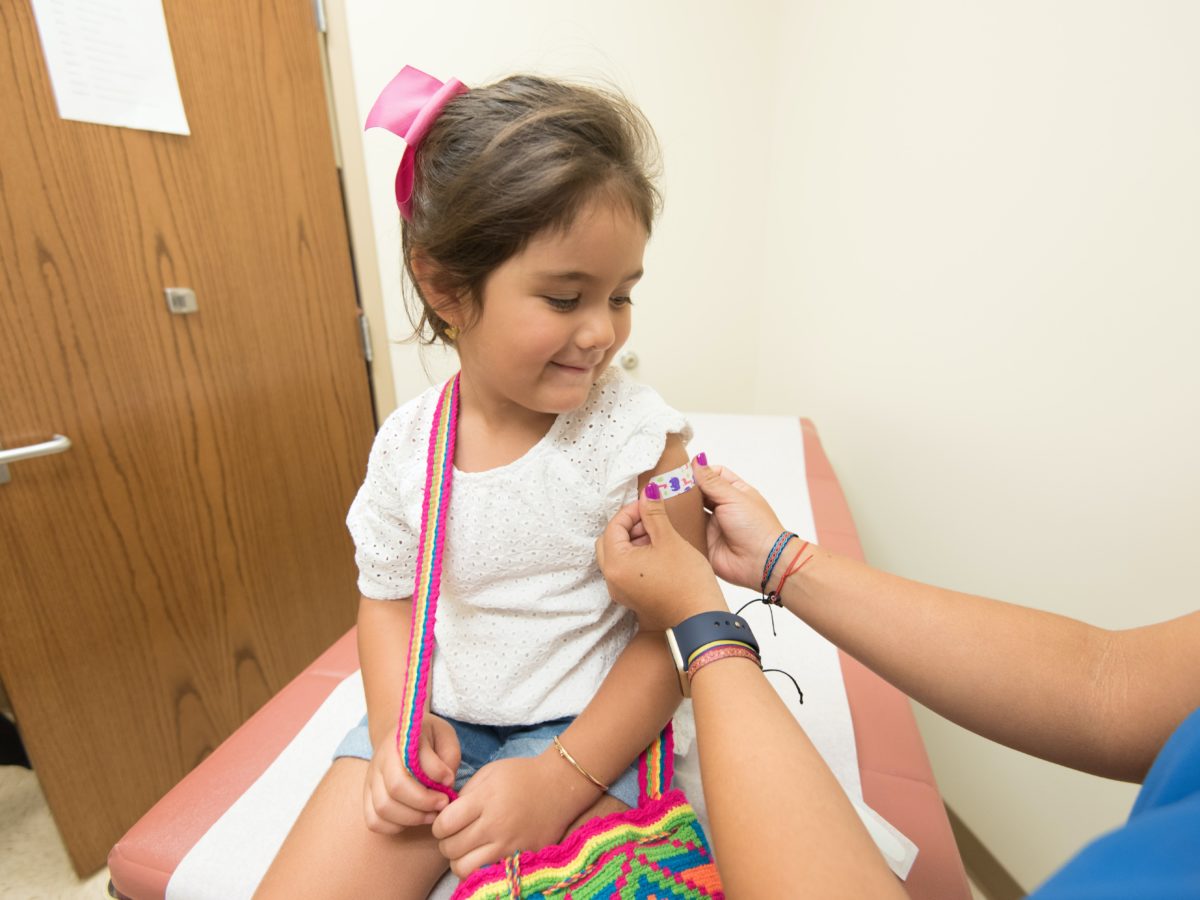
Share this story
|
|
Update, 10:30 a.m. on June 19: Children 6 months and older are now eligible for COVID-19 vaccines. The Centers for Disease Control and Prevention approved Pfizer and Moderna vaccines for young children Saturday. The vaccines are available in North Carolina starting Monday, June 20.
Advisers to the Food and Drug Administration unanimously approved the Pfizer and Moderna COVID-19 vaccines for young children Wednesday, after a long wait for children under 5 to have access to protective options. The F.D.A. officially approved the vaccines Friday.
The panel of advisers approved the Moderna vaccine for children 6 months to 5 years old and the Pfizer vaccine for children 6 months to 4 years old.
The state Department of Health and Human Services (DHHS) had preordered 101,200 doses Thursday to send to providers in all 100 counties, so children could start receiving shots as soon as the final go-ahead is given. DHHS recommends contacting your child’s pediatrician, medical provider, or local health department for details on when the vaccines will be available locally.
Trials found that both vaccines are safe and effective against serious illness that can lead to hospitalization and death. The FDA has said serious illness is a low risk for this age group, but the vaccines would further lower that risk.
Local health departments in every county, pediatricians’ offices, family doctors’ offices, and pharmacies will administer vaccines, according to DHHS. Children must be at least 3 years old to receive the vaccine at a pharmacy, the department said. More than 300 pediatric offices have enrolled to receive the vaccine and will get shipments from DHHS in the next two weeks.
“Parents and guardians with questions about COVID-19 vaccines should talk with their child’s physician,” Summer Tonizzo, a DHHS spokesperson, said in an emailed statement. “Children are vulnerable to the COVID-19 virus just like everyone else. Infection and pediatric hospitalization rates increased significantly during Omicron and we are currently seeing some increases in our trends. COVID-19 vaccines are still the best protection from severe illness, hospitalization or death for ourselves and our communities. Recent studies also suggest vaccines can prevent long COVID, which can happen even in people whose initial illness was not severe. Currently, vaccines are available for everyone 5 years and older, and people can find a vaccine near them by visiting https://covid19.ncdhhs.gov/vaccines.”
Sign up for Early Bird, our newsletter on all things early childhood.
The vaccines were found to be somewhat effective against symptomatic illness. Pfizer found its vaccine was 28% effective in preventing symptomatic infection in children 6 months to 4 years old after two doses. After a third dose, Pfizer said, it was 80% effective — but that’s from incomplete data due to a much smaller sample size in that phase of the trial.
Moderna’s trial found its two-dose vaccine to be 51% effective against symptomatic infection in children 6 months to 2 years old and 37% effective in children 2 to 5 years old.
“Despite what may end up feeling like a complicated decision for a lot of people, the facts we have here point to two effective vaccines with limited side effects,” Emily Oster wrote in a recent edition of her newsletter ParentData. Oster, an economics professor at Brown University, has researched pandemic trends and offered guidance to parents and schools based on research.
Oster wrote that the vaccines seem to be working against Omicron in young children’s bodies in a similar way that they do in adults’ bodies. Read more on factors to consider when it comes to which vaccine to choose.
“It’s been a long time coming, and my sense is that some people have moved from eager to angry to disillusioned,” Oster wrote. “Perhaps the final approval here will be a ray of hope.”
Recommended reading




